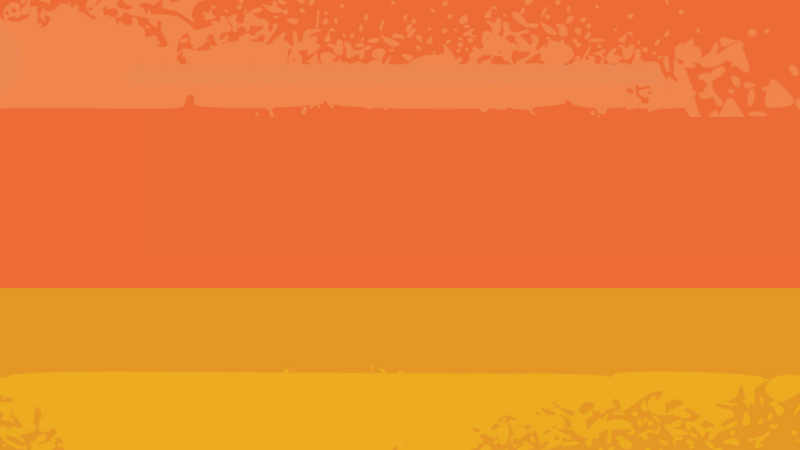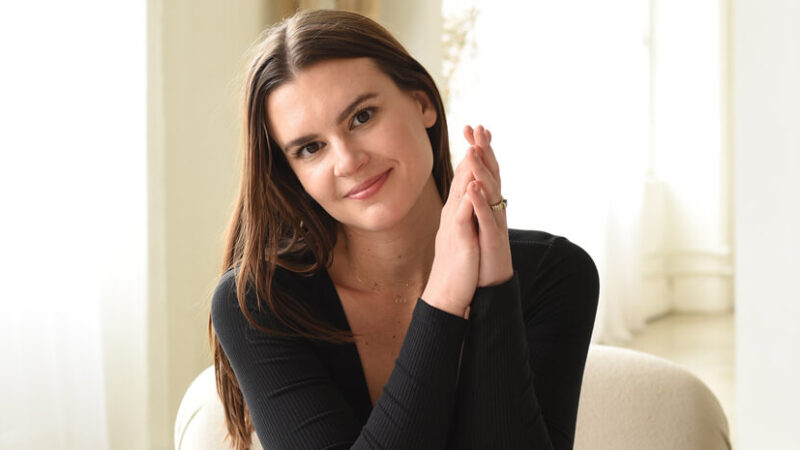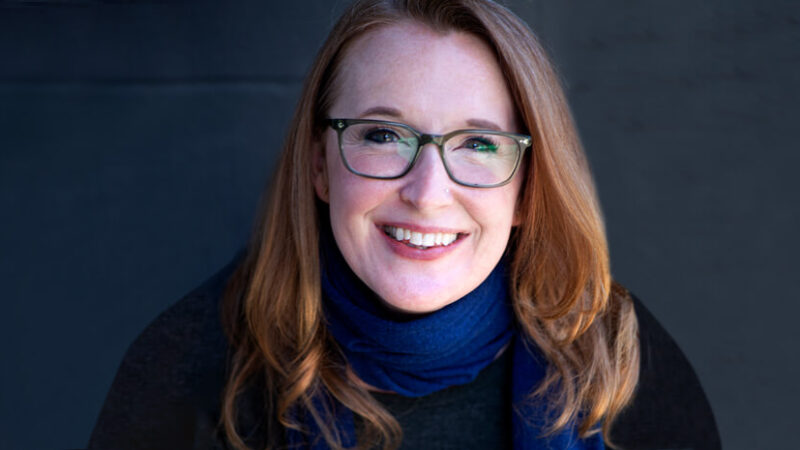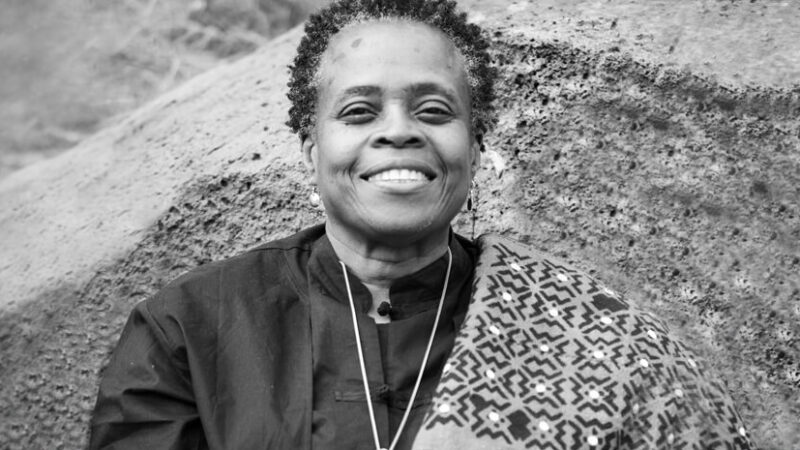-
E91: Allowing Life to Remove Your Blockages
Michael Singer — July 2, 2025
The foundational flaw in human behavior is the belief that "I'm not okay." What follows is the...
-
Cyndi Dale: Becoming Your Own Best Ancestor
Cyndi Dale — July 1, 2025
On the surface, it appears as though the lives we live proceed forward moment by moment in a...
-
Honey Tasting Meditation: Build Your Relationship with Sweetness
There is a saying that goes “hurt people hurt people.” I believe this to be true. We have been...
Written by:
Amy Burtaine, Michelle Cassandra Johnson
-
Many Voices, One Journey
The Sounds True Blog
Insights, reflections, and practices from Sounds True teachers, authors, staff, and more. Have a look—to find some inspiration and wisdom for uplifting your day.
Standing Together, and Stepping Up
Written By:
Tami Simon -
The Michael Singer Podcast
Your Highest Intention: Self-Realization
Michael Singer discusses intention—"perhaps the deepest thing we can talk about"—and the path to self-realization.
This Week:
Cyndi Dale: Becoming Your Own Best Ancestor -
Many Voices, One Journey
The Sounds True Blog
Insights, reflections, and practices from Sounds True teachers, authors, staff, and more. Have a look—to find some inspiration and wisdom for uplifting your day.
Take Your Inner Child on Playdates
Written By:
Megan Sherer
600 Podcasts and Counting...
Subscribe to Insights at the Edge to hear all of Tami's interviews (transcripts available, too!), featuring Eckhart Tolle, Caroline Myss, Tara Brach, Jack Kornfield, Adyashanti, and many more.
Most Recent
What is Somatic Abolitionism?
Somatic Abolitionism is a living, embodied anti-racist practice, a form of culture building, and a way of being in the world. In this immersive audio workshop, Resmaa Menakem presents ten sessions of insights and body-based practices to help listeners liberate themselves—and all of us—from racialized trauma and the strictures of white-body supremacy.
Listen to the first 15 minutes of this audio program:
https://soundstrue-ha.s3.amazonaws.com/video/You-Me-Us-Racialized-Trauma-Excerpt.mp4#t=,15
This is an adapted excerpt from You, Me, Us and Racialized Trauma by Resmaa Menakem.
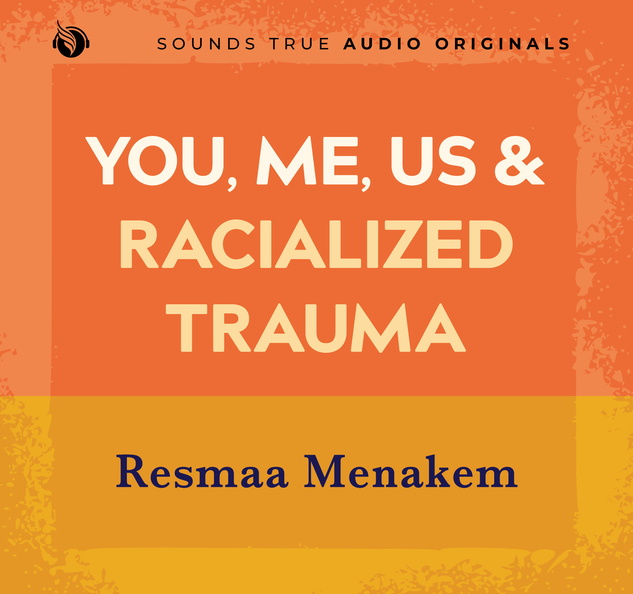
You, Me, Us, and Racialized Trauma
Somatic Abolitionism is a living, embodied anti-racist practice, a form of culture building, and a way of being in the world. In an immersive audio workshop, Resmaa Menakem presents ten sessions of insights and body-based practices to help listeners liberate themselves—and all of us—from racialized trauma and the strictures of white-body supremacy.
Are You Suffering from Empathic Distress? How to Recla...
Are you exhausted, anxious, or overwhelmed? Maybe your life is challenging. Or perhaps the state of the world and others’ suffering feels unbearable. If your life is going well, but you still feel miserable, maybe you have some guilt or shame. You are not alone. You may be suffering from empathic distress.
Most of us have been taught that empathy is wholly positive and should be fostered in children and revered in adults. This idea is partly correct. The absence of empathy is clearly problematic. When the ability to sense or care about others’ feelings or pain is missing, we edge into sociopathy. However, empathy is experiencing another person’s pain as our own. In small doses and for short periods, it allows us a deeper understanding of our fellow beings. But it can also make it harder to help, because the pain is spread around, not diminished. If your friend breaks their leg and you experience genuine empathy, it might feel like your leg is broken too. This makes it harder for you to function and definitely harder for you to help them.
Empathy can make us sick, overwhelmed, and burned out.
Many people feel helpless in the face of the magnitude of suffering in the world today. It can result in what appears to be apathy at first but is actually empathic distress, which means “hurting for others while feeling unable to help.” An op-ed in the New York Times titled “That Numbness You’re Feeling? There’s a Word for It” described this phenomenon and cited some of the research I used to create the Sounds True audio course Shining Bright Without Burning Out: Spiritual Tools for Creating Healthy Energetic Boundaries in an Overconnected World.
The Research
Neuroscientists Olga Klimecki and Tania Singer identified empathy as a contributing factor to burnout, primarily but not exclusively, among healthcare workers and therapists. The older term compassion fatigue is a “misnomer.” Compassion and empathy have distinctly different impacts on our bodies and psyches. Compassion is witnessing and being willing to help when possible and appropriate. Empathy is taking on others’ pain as our own. Empathy often creates “more distress.” It is a huge distinction.
Empathy is overrated and fatiguing. Compassion is what we need. Unfortunately, we often confuse the two. This dynamic is one reason why developing healthy energetic boundaries is essential.
Decreasing Empathic Distress
Being unable to adjust between compassion and empathy is a big reason many people feel drained and overwhelmed. Research about the critical difference between compassion and empathy aligns with many spiritual concepts of energetic boundaries. It also challenges some. One of the ways we inadvertently make things difficult for ourselves is when we believe that to be good, kind, “spiritual” people, we must always be wide open. We must be at one with the universe, be open to everyone, and say yes to everything. There is a paradox here. We are all one on some level, but we need to embrace the ability to differentiate ourselves from others at times to steward our own health.
We have reached a tipping point with empathic distress; it is a crisis within the crises.
Klimecki and Singer focus on how training in compassion meditation can help reduce empathic distress, shifting from an experience of absorbing others’ energy to a state of kindness toward others with clear self-differentiation. The distinction between empathy and compassion is one of the first things we cover in Shining Bright Without Burning Out: Spiritual Tools for Creating Healthy Energetic Boundaries in an Overconnected World. The course also includes a full set of tools for addressing empathic distress from the perspective of energetic boundaries.
Here are a few additional steps you can take today to begin reducing empathic distress:
- Be clear about your direct responsibilities and what is not yours.
- Pause before entering new situations: conversations, appointments with clients, meetings, etc. Take a moment to reset yourself with a breath and an intention for how you want to engage.
- Pay attention to how you feel after interactions with people, places, and media. Note over time when your mood or body feels drained so that you can prepare more thoroughly in the future, consider how to minimize those interactions if they are optional, and take time to reset after engaging.
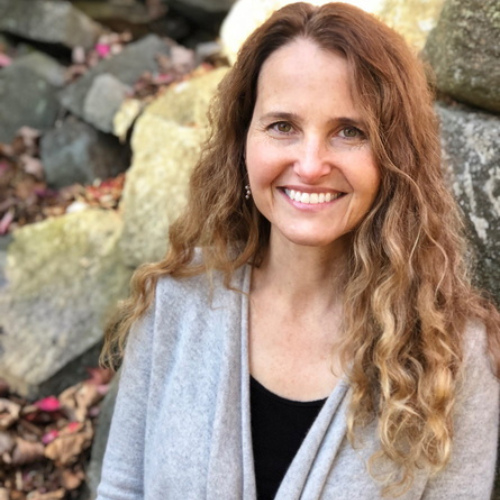
Mara Bishop
Mara Bishop is a shamanic practitioner, intuitive consultant, teacher, author, and artist. In private practice, she uses her Personal Evolution Counseling™ method to provide an integrated approach to spiritual healing, personal growth, and emotional well-being. Her books Shamanism for Every Day: 365 Journeys and Inner Divinity: Crafting Your Life with Sacred Intelligence are resource guides for spiritual practice. She resides in Durham, North Carolina. For more, visit wholespirit.com.
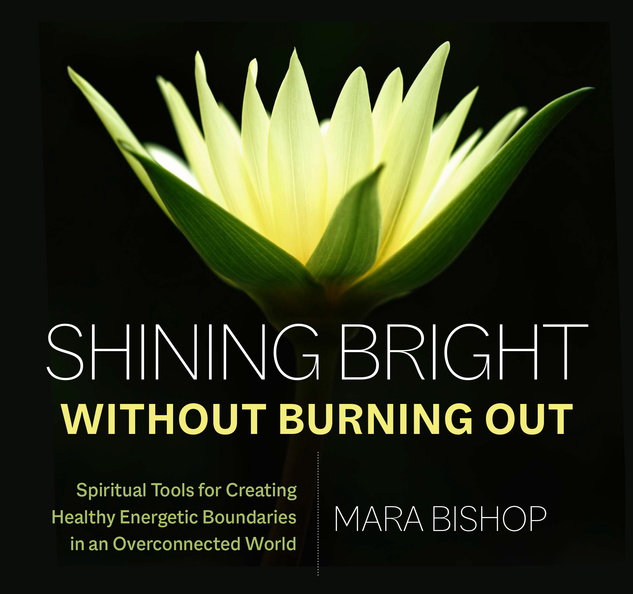
Learn More
Sounds True
Kate Van Horn: The Inner Tarot
Newcomers to tarot often feel a measure of trepidation or uncertainty. A reading might show you things you’re not eager to see—which is exactly why the cards can serve as one of our greatest tools on the journey of self-discovery and healing. With her new book, The Inner Tarot, Kate Van Horn offers a gentle, practical handbook for any level of experience to help demystify the tarot and work with the cards as a trustworthy companion on your life’s path.
Give a listen to this illuminating podcast with Tami Simon and Kate Van Horn as they discuss: overcoming the wounds of generational trauma; alchemizing your shadow; the tarot as a living object; channeled writing and spirit connections; numerology as a foundation for reading tarot; understanding the four elements: earth, fire, water, and air; the grace and gift of self-compassion; reading tips for beginners; the minor and major arcana; a tarot reading for today’s times; knowing how to course correct; restoring our fragmented energy; avoiding the habit of “panic pulling” cards; discernment in working with intuitives; reading physical spaces; and more.
Note: This episode originally aired on Sounds True One, where these special episodes of Insights at the Edge are available to watch live on video and with exclusive access to Q&As with our guests. Learn more at join.soundstrue.com.
Customer Favorites
Tara Brach: Radical Acceptance
Tami Simon speaks with Tara Brach, an author, clinical psychologist, and founder and senior teacher of the Insight Meditation Community of Washington, DC. She’s the author of the Sounds True audio learning program Radical Self-Acceptance: A Buddhist Guide to Freeing Yourself from Shame and Meditations for Emotional Healing. In this rebroadcast of one of the most popular and well-received Insights at the Edge interviews, Tami and Tara have a revealing discussion about what radical acceptance is and how we can use this practice in the face of difficult emotions. (56 minutes)
MaryCatherine McDonald: The Trauma Response Is Never W...
For centuries, we’ve been taught that being traumatized means we are somehow broken—and that trauma only happens to people who are too fragile or flawed to deal with hardship. Instead, says Dr. MaryCatherine McDonald, the trauma response proves our spirit cannot be broken. In this podcast, Tami Simon and “MC” (as her students call her) discuss her new book, Unbroken: The Trauma Response Is Never Wrong—And Other Things You Need to Know to Take Back Your Life, and how we might as a society begin to update our understanding of trauma and its healing.
Tune in for this inspiring conversation about the impact of trauma on the narratives that make up our identity; recalibrating the nervous system after trauma; memory and the hippocampus; relearning a sense of embodied safety; dealing with loss in our grief-phobic culture; trauma defined as “an unbearable emotional experience that lacks a relational home”; the unconscious nature of triggers, and how to raise awareness around them; the miracle of your adaptive brain and body; trust and community in the healing of trauma; reconciling life’s ultimate vulnerability; finding resilience and strength in these uncertain times; attunement, holding space, honesty, and other elements that provide a relational home; realizing an anchor in the “tiny little joys”; the healing power of… Tetris?; healthy regulation; and more.
Zenju Earthlyn Manuel: Opening to Darkness
Darkness is an inseparable part of life. Yet instead of resisting it or trying to eradicate it, as society would often have us do, how can we use darkness as fodder for our growth and evolution? In this podcast, Tami Simon speaks with poet, Zen Buddhist priest, and artist Zenju Earthlyn Manuel about her new book, Opening to Darkness: Eight Gateways for Being with the Absence of Light in Unsettling Times, and how we can begin to change the way we relate to darkness and blackness.
We invite you to turn off the lights and close your eyes (assuming you’re not driving), as you listen to this insightful and provocative conversation exploring “zenju,” or complete tenderness; our longing for light and the call to “enter our caves”; the connection between the bias toward light and the oppression of Black-bodied people; the evolutionary force of blackness; creativity and darkness; the notion of “the absence of light”; the price we pay by avoiding darkness at all costs; how we can’t really know but can only experience light or darkness; the teacher of darkness called death, and the willingness to look at something beyond our control; the inner capacities to stay with darkness; recognizing the spiritual component to darkness; building an intuition and going beyond what is taught and learned about darkness and blackness; being with suffering; silence and darkness; and more.
Note: This episode originally aired on Sounds True One, where these special episodes of Insights at the Edge are available to watch live on video and with exclusive access to Q&As with our guests. Learn more at join.soundstrue.com.
